Békalta, Tunisia (May 15, 2016) – The Tunisian tomato sector covers with between 1 and 1.3 million tons per year 14.2% of the agricultural production quantity and 4.8% of the production value. Tomato is the second most important commodity produced in terms of quantity by the country and it is grown annually on an area of around 28,000 ha.
Soil borne fungal diseases are among the most damaging diseases of tomato in Tunisia. Among them, Fusarium wilt (FW) caused by Fusarium oxysporum f. sp. lycopersici (FOL) races 1 and 2, Fusarium Crown and Root Rot (FCRR) incited by F. oxysporum f. sp. radicis lycopersici, and Verticillium wilt (VW) due to Verticillium dahliae (Vd) races 1 and 2 are of particular concern.
The SANBIO ferti-activators can control biotic and abiotic stress and have positive impact to vegetative and resistive processes.
The aim of this study is to evaluate the effect of ferti-activators Sanbio EPSOMIT and Sanbio PLANTA on curative control of Mildew and productivity of tomato variety ´Sahel´ in greenhouse production.
This project is being carried out within the collaboration between the Farm Sahbi Oum Ezzine – Tunsia, SGDAI Société Générale de Développement Agricole et Industriel Sarl – Tunisia and SANBOS GmbH – Germany.
1. Materials and methods
Table 1. Basic data
| Season | 2016-2017 |
| Location | Baghdadi-Békalta, Tunisia 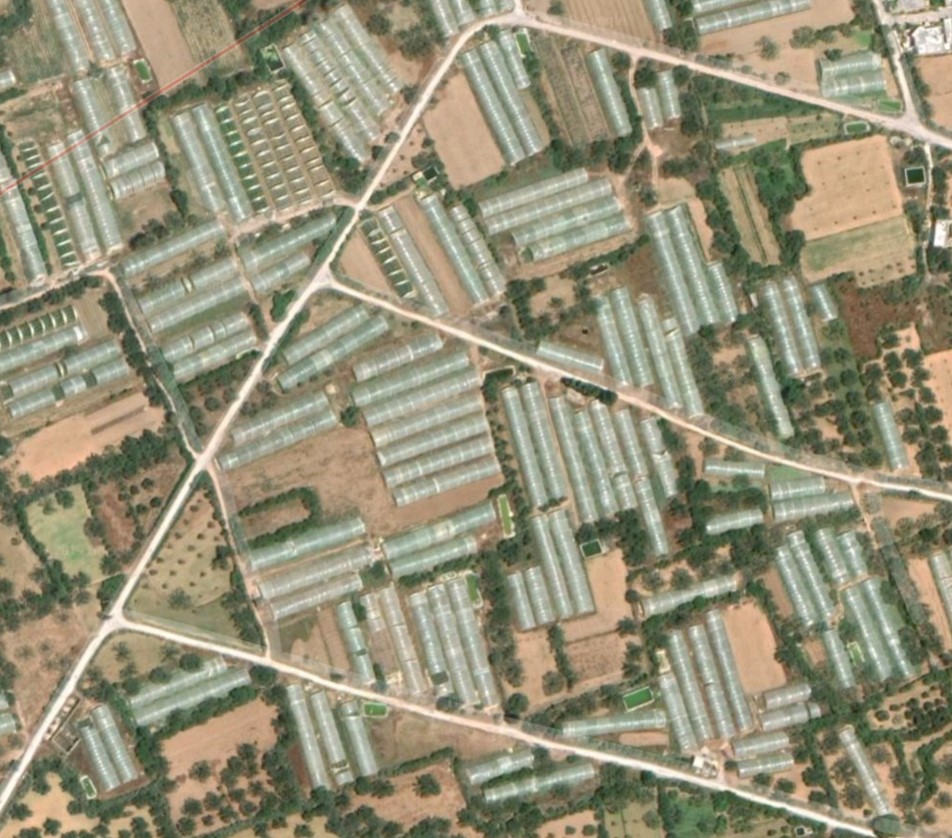 Picture 1: Glasshouse complex |
| Responsible organization | Farm Sahbi Oum Ezzine |
| Crop | Tomato |
| Variety | Sahel |
| Trial field | 1 block system, 8-9m tunnel, 540 m² |
| Plant density | 1400 plants per tunnel |
| Soil quality | leached soil due to use since 70 years with high contamination due to excessive use of artificial fertilizer and pesticides |
| Pesticides | none |
| Irrigation | drip irrigation |
| Test product | Sanbio EPSOMIT, Sanbio PLANTA, manufactured by SANBOS GmbH, Germany |
| Rate and application | 2 applications, each 50 g SANBIO EPSOMIT + 50L water per glasshouse (resp. 1 kg/ha product rate), soil application 2 applications, each 80 g SANBIO PLANTA + 50L water per glasshouse (resp. 1.5 kg/ha product rate), soil application |
| Date of planting | 10/12/2016 |
| Date of application | 2 applications in the time period of 07/01/2017 and 22/02/2017 |
| Date of harvest | 15/05/2017 |
| Scoring | Yield, resistance against Mildew |
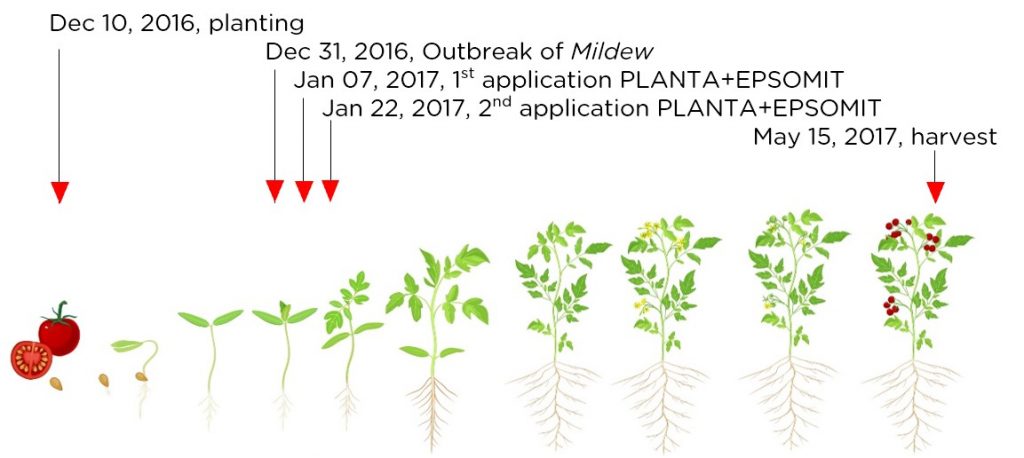
Figure 2. Seasonal time schedule
2. Results
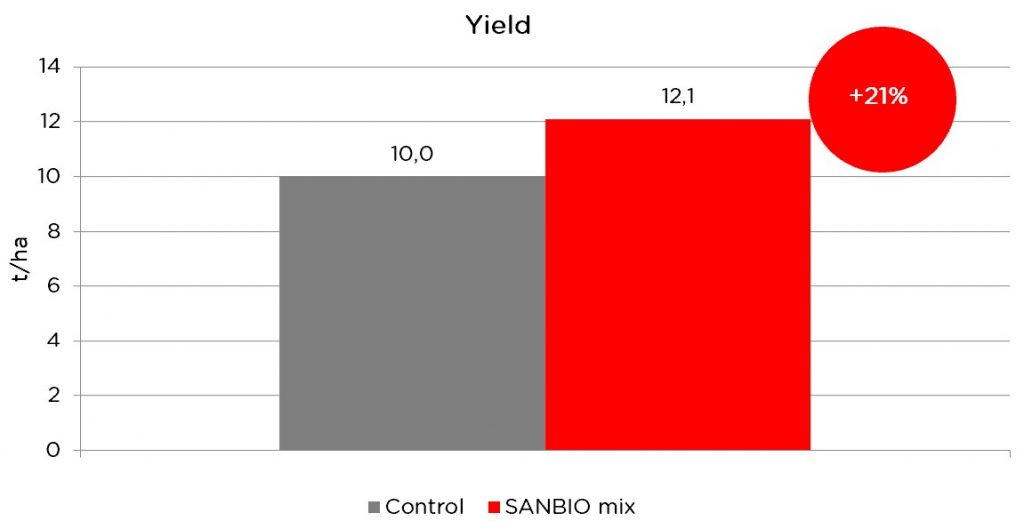
Figure 3. Yield of tomato (t/ha)
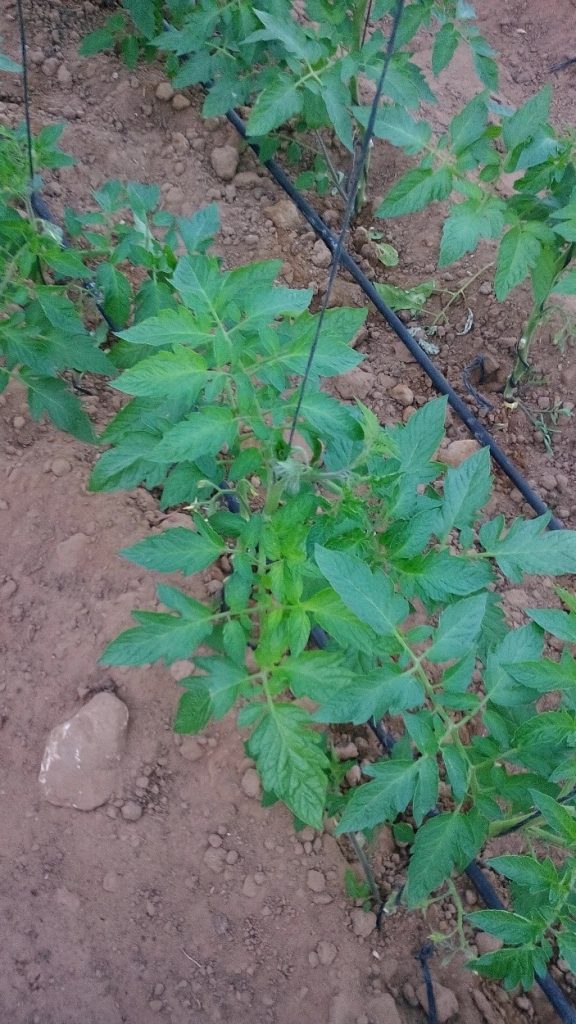
Figure 4. No flowers visible in the intreated tunnel (Control)
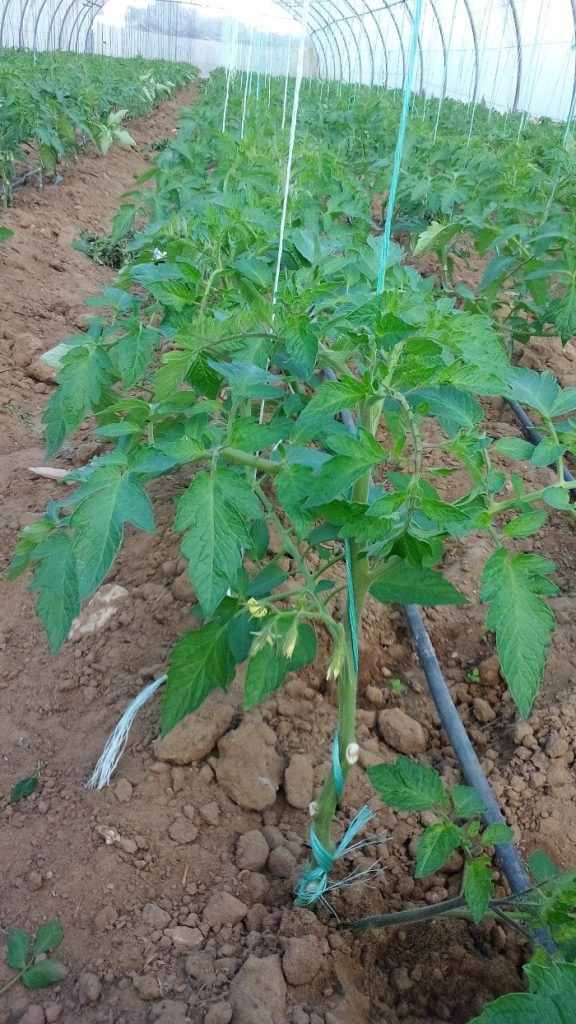
Figure 5. Earlier ripening in the treated tunnel
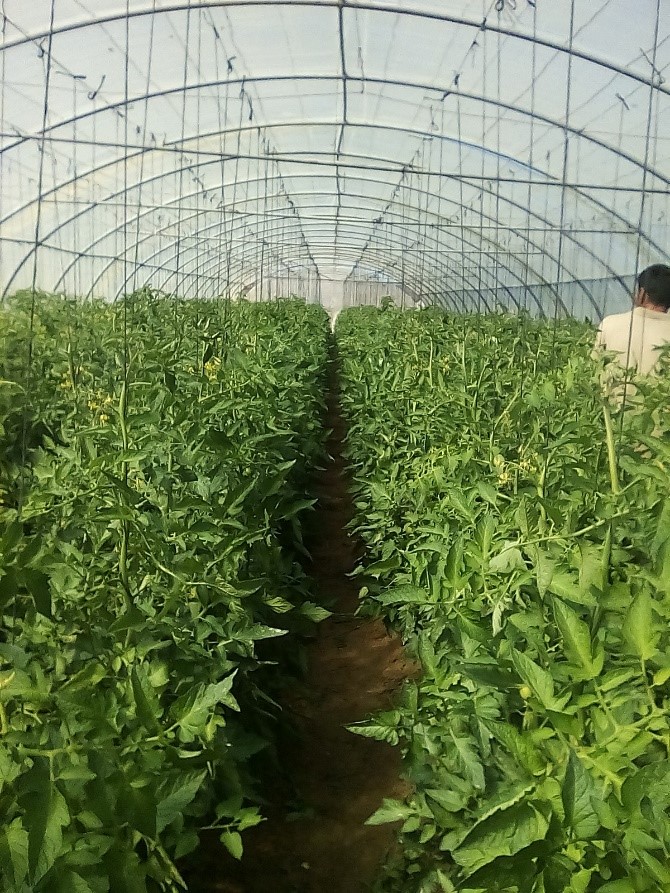
Figure 6. Evenly developed plants in the treated tunnel
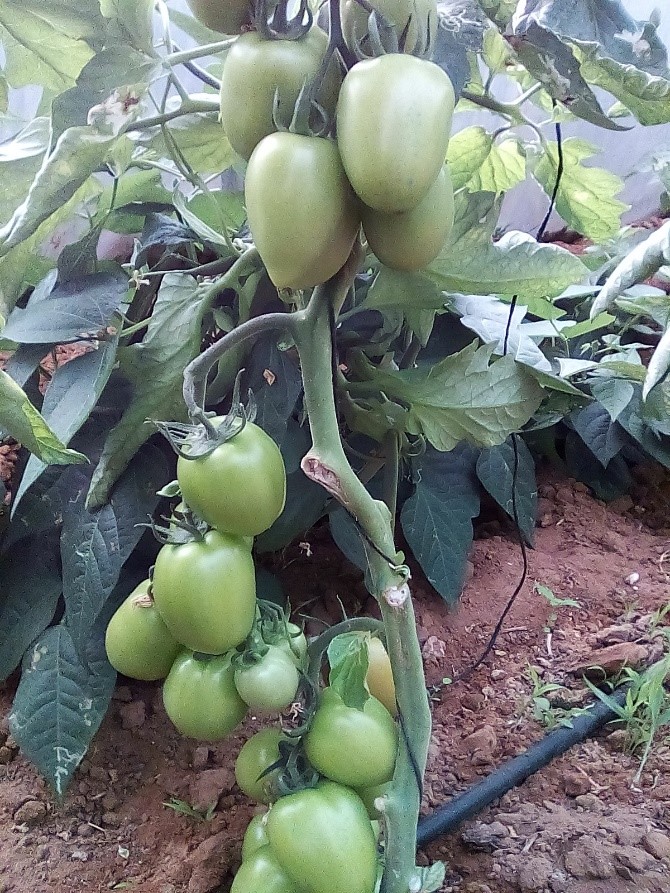
Figure 7. Development of one shoot more per plant in the treated tunnel
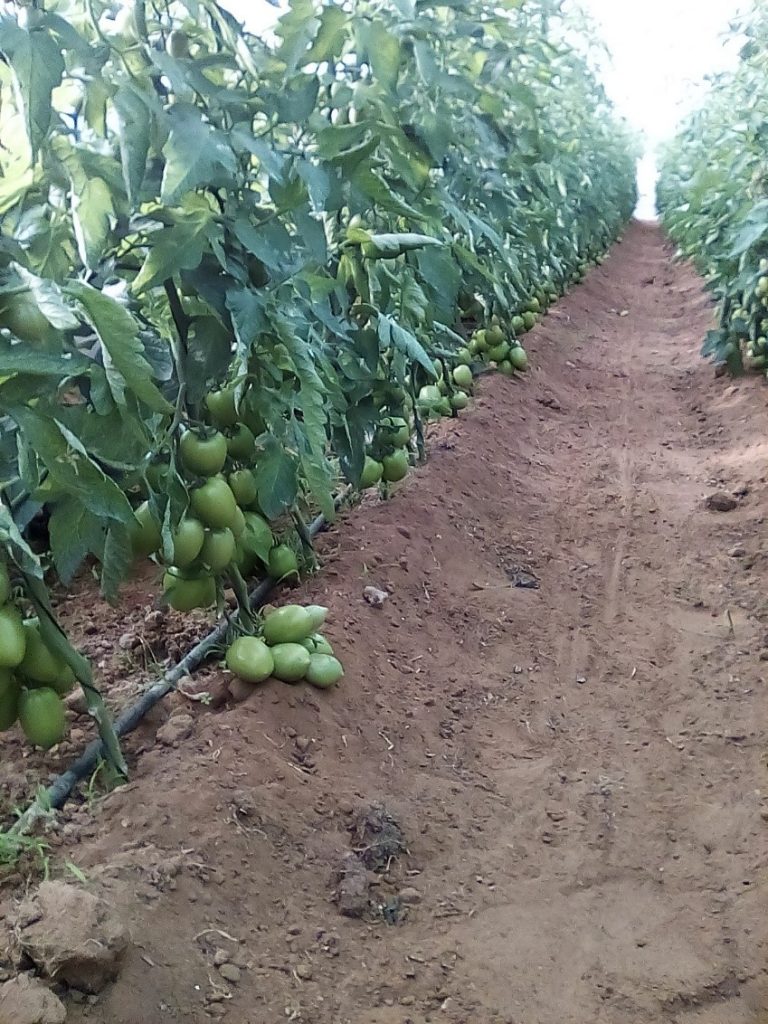
Figure 8. No weeds in the treated tunnel, although no herbicides have been used. The treatment with Sanbio products suppresses the growth of weeds and is an important measure to avoid mildew diseases.
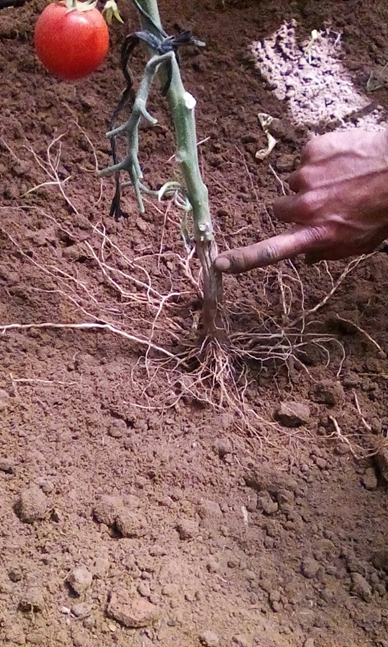
Figure 9. Individual plants have been weakened by Mildew also in the treated tunnel, recognizable by black-coloured roots. The treatment with SANBIO products leads to stimulation of growth and recovery of fine-root system
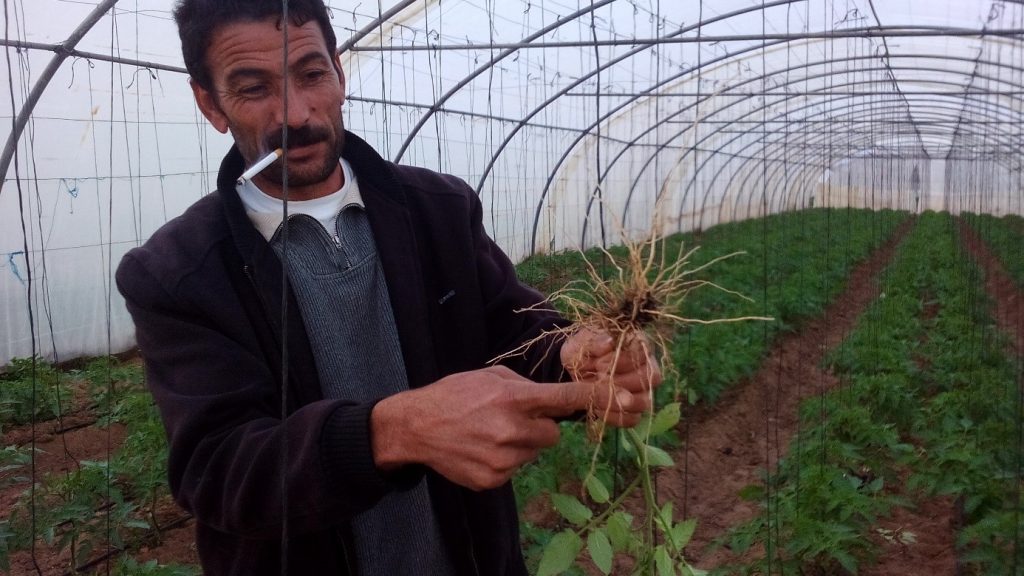
Figure 10. Stimulation of root growth
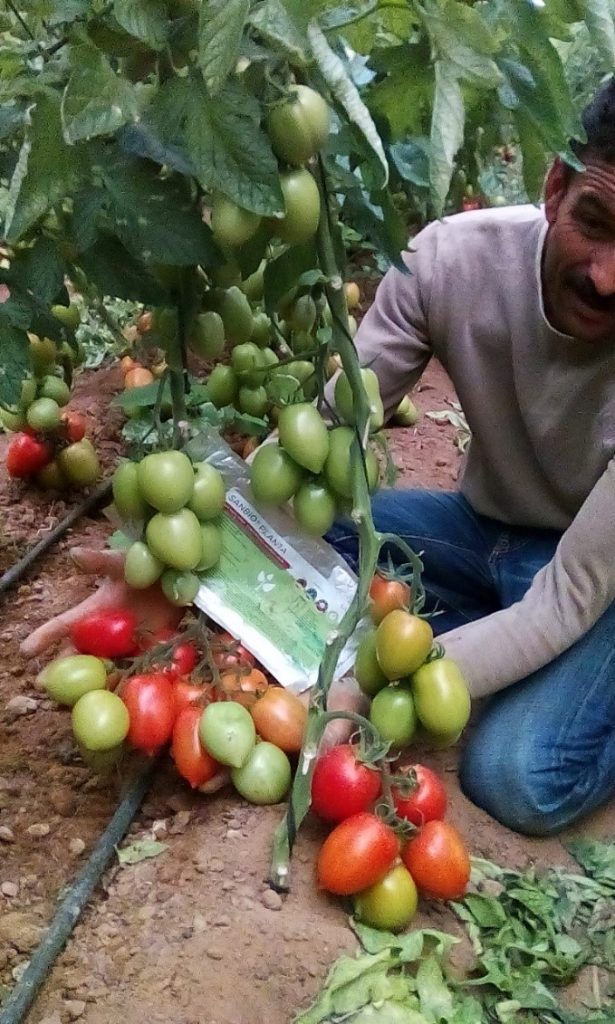
Figure 11. Higher yield in the treated tunnel
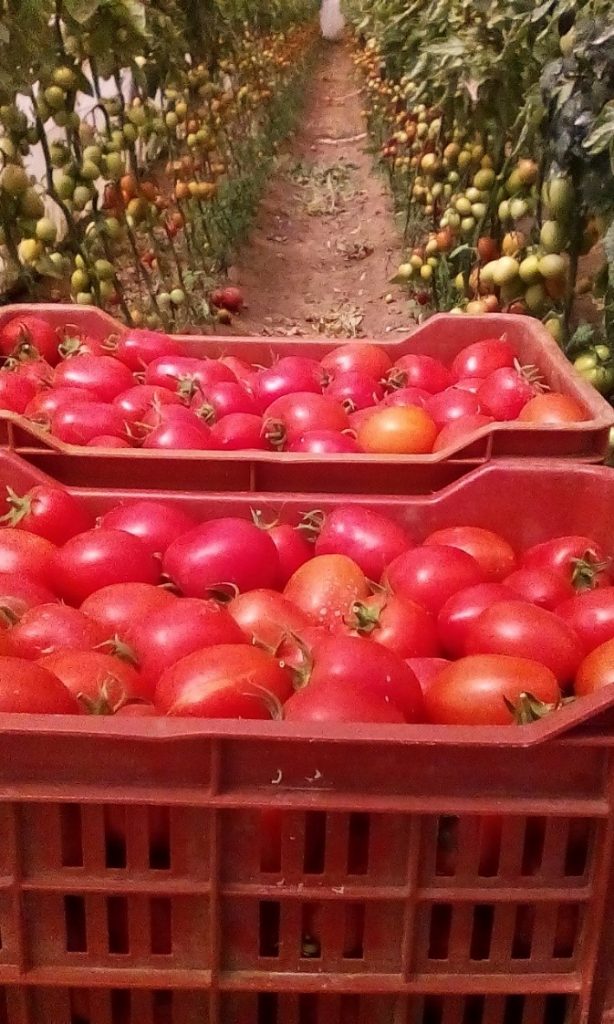
Figure 12. Rescued rich harvest even under unfavourable conditions
3. Conclusion
To summarize, the present study shows positive effects on productive performance of tomato cv ´Sahel´ by use of ferti-activators Sanbio EPSOMIT and Sanbio PLANTA ´.
The positive effects at glance:
- Significantly higher harvest (+21%)
- Improved vigor (+ one shoot per plant, resp. +1.5 kg more fruits per plant)
- Earlier ripening and harvest (30 days earlier)
- Introduced resistance against Mildew by curative treatment
- Ban of fungicides
- Proofed profitability due to rescue of harvest.